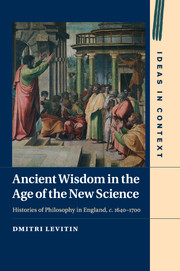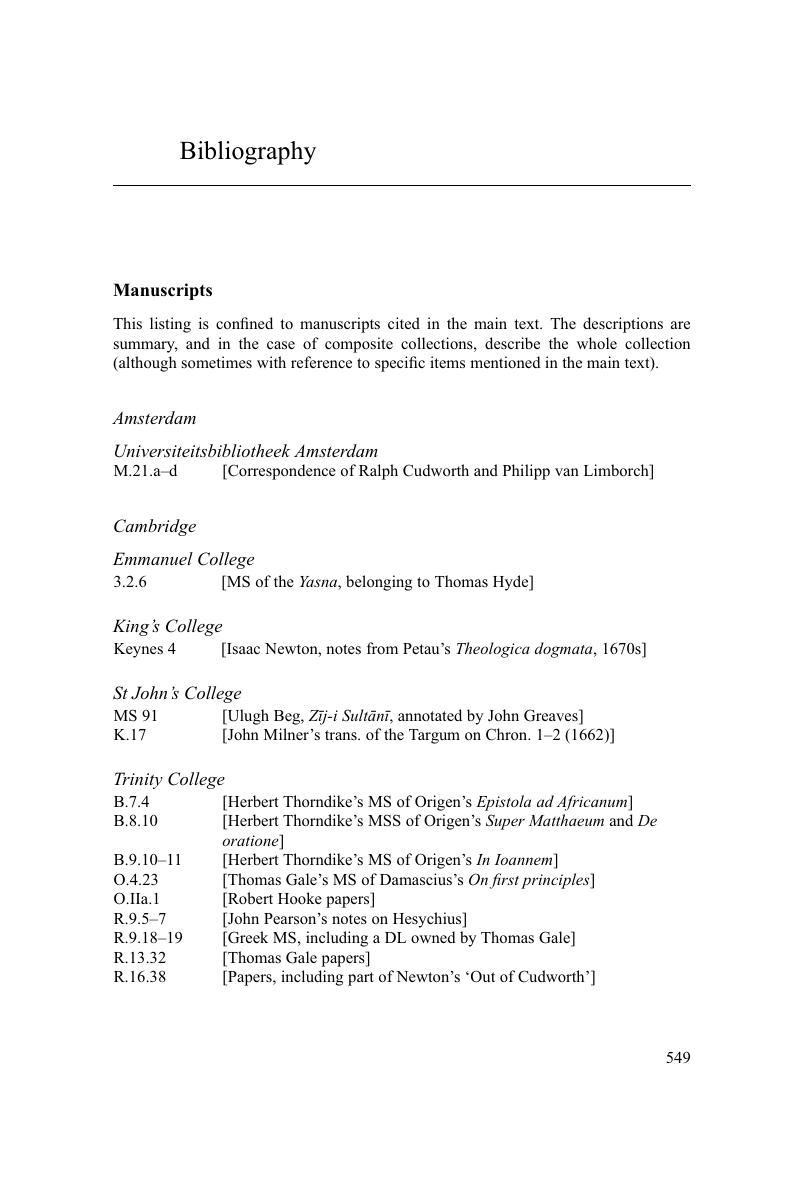 Ancient Wisdom in the Age of the New Science
Ancient Wisdom in the Age of the New Science Book contents
- Ancient Wisdom in the Age of the New Science
- Ideas in Context
- Ancient Wisdom in the Age of the New Science
- Copyright page
- Contents
- Book part
- Glossary
- Notes on the text
- 1 Introduction: histories of philosophy between ‘Renaissance’ and ‘Enlightenment’
- 2 Ancient wisdom I. The wisdom of the east: Zoroaster, astronomy, and the Chaldeans, from Thomas Stanley to Thomas Hyde
- 3 Ancient wisdom II: Moses the Egyptian?
- 4 Histories of natural philosophy I. Histories of method
- 5 Histories of natural philosophy II. Histories of doctrine: matter theory and animating principles
- 6 Philosophy in the early church
- 7 Conclusion
- Bibliography
- Index
- Ideas in Context
- References
Bibliography
Published online by Cambridge University Press: 05 October 2015
- Ancient Wisdom in the Age of the New Science
- Ideas in Context
- Ancient Wisdom in the Age of the New Science
- Copyright page
- Contents
- Book part
- Glossary
- Notes on the text
- 1 Introduction: histories of philosophy between ‘Renaissance’ and ‘Enlightenment’
- 2 Ancient wisdom I. The wisdom of the east: Zoroaster, astronomy, and the Chaldeans, from Thomas Stanley to Thomas Hyde
- 3 Ancient wisdom II: Moses the Egyptian?
- 4 Histories of natural philosophy I. Histories of method
- 5 Histories of natural philosophy II. Histories of doctrine: matter theory and animating principles
- 6 Philosophy in the early church
- 7 Conclusion
- Bibliography
- Index
- Ideas in Context
- References
Summary

Information
- Type
- Chapter
- Information
- Ancient Wisdom in the Age of the New ScienceHistories of Philosophy in England, <I>c</I>. 1640–1700, pp. 549 - 646Publisher: Cambridge University PressPrint publication year: 2015